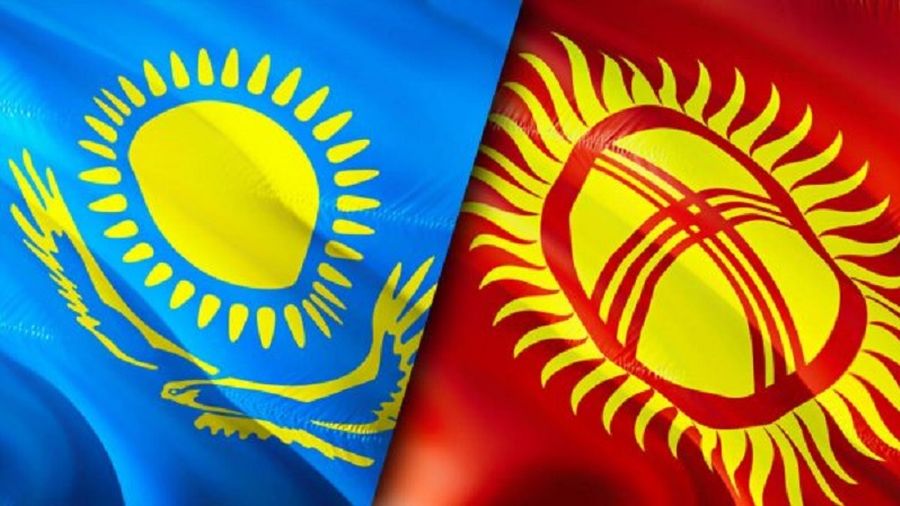Anti-Russian Attacks in Kazakhstan & Kyrgyzstan Are a New Hybrid War Threat
These countries’ leaderships appreciate their strategic relations with Russia and are also keenly aware of the serious Hybrid War threat that those provocations pose to their domestic stability.
Some “nationalist activists” in Kazakhstan and Kyrgyzstan have recently taken to attacking those of their compatriots who address them in Russian, prompting condemnation from Moscow and stern responses from their governments against this worrying Hybrid War threat. Kazakhstan is a much more multicultural society than Kyrgyzstan due to its significant Russian minority while the latter can best be described as a constellation of various clans who mostly all share the same ethnicity (except in the Fergana Valley where many of the Uzbek minority reside). Both of these Central Asian Republics (CARs) are Russia’s mutual defense allies through the CSTO and also participate in the Moscow-led Eurasian Economic Union (EAEU). Russia is therefore very concerned about its ethnic compatriots and others who speak its language being brutally attacked there.
It remains unclear whether the “nationalist activists” responsible for these crimes are connected to foreign NGOs or intelligence agencies, but they nevertheless constitute a serious regional security threat which could advance American strategic interests if it isn’t soon checked before spiraling out of control. The brief Trump Era was characterized by a resurgence of nationalist sentiment across the world, the origins of which predated his ascent to power and its consequences will long outlast his departure because it embodies preexisting trends in countless societies. It’s first and foremost a reaction to the previously unchecked liberal-globalist processes that swept the planet during the short period of unipolarity but varying degrees of support have been provided to different movements by foreign actors over the years in order to advance their divide-and-rule interests.
In the Central Asian context, the US has every reason not to want this geostrategic region in the middle of the Eurasian Heartland to serve as the convergence point of the many multipolar processes jointly pioneered by Russia and China, particularly connectivity ones related to synchronization of Moscow’s EAEU and Beijing’s Belt & Road Initiative (BRI). There have already been some violent Sinophobic incidents in reaction to what some claim (whether truthfully, falsely, or in an exaggerated manner) are the local economic consequences of many low-cost Chinese products entering their marketplaces and certain BRI contracts being carried out by Chinese workers instead of their own compatriots, but locals haven’t ever really had a problem with Russia’s legacy of influence there.
This is a pretty new phenomenon, especially in multicultural Kazakhstan, which is why Russia is so concerned. Provocations such as these can quickly spiral out of control since the actors participating in them are presumed to be autonomous and can therefore behave in unpredictable ways. Furthermore, the proliferation of cell phones and social media mean that even relatively minor incidents can spark larger crises, especially if the footage or photos are deceptively misportrayed to the public. Kyrgyzstan is particularly vulnerable to this considering its clan-centric society wherein even the smallest of slights against one group can quickly explode into major clashes between each party’s extended network of supporters. These preexisting socio-technological dynamics make Central Asia especially vulnerable to these sorts of “nationalist”-driven Hybrid War threats.
Considering the mutually beneficial relationship between those countries and Russia, as well as the role that the Russian language plays in both of those CARs for facilitating intercultural communication and enhancing one’s job prospects (especially abroad in the Kyrgyz case since many of its citizens migrate to Russia for work), it can be concluded that these so-called “nationalist activists” do not genuinely represent the grassroots will of their societies. Rather, they’re ultra-radical manifestations of preexisting nationalist trends within their countries and are obsessed with provoking inter-ethnic and consequently international crises on this ideological basis. They hope to place their governments in a dilemma whereby they either submit to these extremists and lose Russian support or defend multiculturalism and then be accused of “selling out” their people.
Nur-Sultan (the recently renamed capital of Kazakhstan formerly known as Astana) and Bishkek have thus far responded to these provocations properly by declaring the perpetrators’ actions to be unacceptable. They’re sending unambiguous signals that they won’t be tolerated whatsoever at all but fiercely suppressed anytime and anywhere they occur. These countries’ leaderships appreciate their strategic relations with Russia and are also keenly aware of the serious Hybrid War threat that those provocations pose to their domestic stability. Investigations should be commenced to determine determine whether these “nationalist activists” are connected to foreign NGOs or intelligence agencies, the outcome of which will show that these are either “lone wolf” radicals or another country’s proxies and thus help to fine-tune the state’s response to them.







